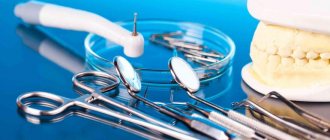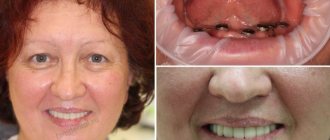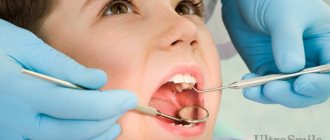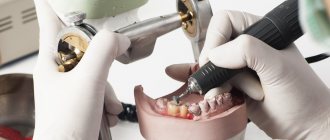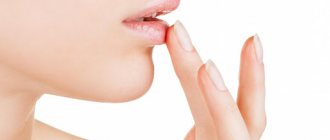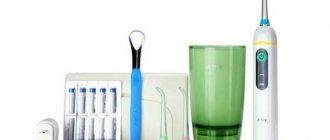Types of benefits for child care up to 3 years old
50 rubles
50 rubles is a benefit paid by the employer from his own funds to employees on parental leave (clause 1 of Decree of the President of the Russian Federation of May 30, 1994 No. 1110, Government Decree of November 3, 1994 No. 1206).
2022 is the last year when employers make such payments (Decree of the President of the Russian Federation of November 25, 2019 No. 570, Government Decree of November 19, 2020 No. 1884).
Legal acts canceling the benefit contain a clause stating that until the end of the period giving the right to receive the benefit, payment will be made provided that it was scheduled before 01/01/2020. It turns out that in 2022, those who submitted an application for payment of benefits before the end of 2019 will receive a 50-ruble allowance for child care under 3 years of age.
Payment to the poor
The allowance of 50 rubles was replaced by an allowance in accordance with Federal Law No. 418-FZ of December 28, 2017 “On monthly payments to families with children.” But not all people on maternity leave will receive the new payment. The law guarantees it if the family belongs to the category of low-income people, and the income per family member does not exceed 2 times the subsistence level of the working-age population (PMTN) in the subject of the federation.
When calculating average per capita income, all money coming into the family is taken into account:
- salary, allowance, remuneration under GPC agreements;
- pensions, benefits (including survivor benefits);
- scholarships;
- income from renting out an apartment, etc.
The right to receive additional payments from the state is permitted only in relation to the first two children born or adopted into the family or from a parent.
The payment will be assigned if the following conditions are met:
- all family members are citizens of Russia and permanently reside in the territory of the Russian Federation;
- the first or second child appeared in the family after 01/01/2018.
To receive state support for a second child, you must receive maternal family capital, since the payment will be made from the maternity capital fund.
The benefit amount is the regional subsistence minimum per child.
Example
By Decree of the Moscow Government dated October 12, 2021 No. 1597-PP, the cost of living for a child in 2022 is set at 16,174 rubles, and PMTN - 21,371 rubles.
A family of four Muscovites has the right to claim a payment in the amount of 16,174 rubles in 2022 if the average per capita income for the month is no more than 42,742 rubles.
In the Moscow region in 2022, the cost of living for children will be 13,869 rubles, for workers - 15,394 rubles (Resolution of the Moscow Region Government dated August 24, 2021 No. 706/29).
Starting in 2022, the federal cost of living will also increase.
To receive payment for the first child, contact the territorial department of social protection of the population, for the second - to the Pension Fund, since the Pension Fund of the Russian Federation is in charge of spending maternity capital funds.
Regional payments
The authorities of the constituent entities of the federation may establish additional measures to support families with children.
Who is a pediatric dentist? – MEDSI
Table of contents
- What does a pediatric dentist do?
- What is a doctor's competence?
- What organs does the dentist deal with?
- When should you contact a pediatric dentist?
- What types of diagnostics does the dentist perform?
- Advice from a pediatric dentist
- Advantages of pediatric dentistry at MEDSI
A pediatric dentist is a doctor who specializes in the prevention, diagnosis and treatment of oral diseases.
What does a pediatric dentist do?
- Conducts regularly scheduled preventive examinations; The first visit should take place in the first month of life, subsequent appointments should be carried out regularly at least once every 6 months, in some cases the pediatric dentist recommends observation once every 3-4 months
- Prevents oral diseases and teaches proper oral hygiene
- Conducts diagnostics of oral diseases (manual, x-ray, laboratory and other manipulations)
- Provides treatment of teeth, oral mucosa, periodontal disease in children
- Performs aesthetic restoration of teeth after injuries
What is a doctor's competence?
- External examination, examination of the oral cavity
- Prescribing and carrying out diagnostic procedures
- Treatment of oral diseases (dental caries and its complications, diseases of the oral mucosa, periodontal disease)
- Carrying out preventive measures (professional oral hygiene: removal of soft and hard dental deposits, coating of teeth with fluoride-containing preparations, deep fluoridation of teeth, sealing of dental fissures, etc.)
- Training in rational oral hygiene
- Referral to other specialists and additional examinations
What organs does the dentist deal with?
A pediatric dentist deals with the prevention, diagnosis and treatment of diseases of the oral cavity (teeth, mucous membrane of the mouth and tongue, gums, lips).
When should you contact a pediatric dentist?
It is necessary to visit a pediatric dentist starting from the first month of life, at least once every 6 months. In some cases, with a high intensity of the carious process, more frequent observation by a pediatric dentist is necessary (once every 3-4 months).
What types of diagnostics does the dentist perform?
- Taking an anamnesis - studying data about the patient that will help make a diagnosis, as well as familiarizing yourself with the history of the disease
- Visual inspection
- Oral examination
Additionally, the following may be assigned:
- Radiation diagnostics (x-ray - sighting, panoramic (of the jaws), tomogram of the jaws)
- Laboratory diagnostics (allergological examinations, examination of mineral metabolism, etc.)
- Examinations by related specialists (dental surgeon, orthodontist, pediatrician, allergist-immunologist, neurologist, speech therapist, etc.)
Advice from a pediatric dentist
The main task of a pediatric dentist is the prevention of dental diseases, timely early diagnosis and treatment of dental caries.
Parents need to pay attention to:
- Nutrition and lifestyle during pregnancy, when the formation of teeth in the unborn child occurs (from 6–7 weeks of pregnancy)
- The nature of the baby’s nutrition from the first days is a sufficient supply of calcium, protein, microelements and B vitamins for the proper growth of bones and teeth
- Prevention of anemia, rickets and rheumatism - social diseases that also affect the quality and health of teeth
- Baby oral hygiene - use of dental wipes and then soft brushes
- With the appearance of chewing teeth - brushing twice a day with children's toothpaste, rinsing the mouth after meals, teaching the child to use dental floss
- The need for regular visits to the dentist
- The need for regular professional oral hygiene
Advantages of pediatric dentistry at MEDSI
MEDSI pediatric dentistry in Moscow is:
- Availability of a pediatric dentist in Moscow districts due to convenient clinic locations
- Experienced specialists who know how to find an approach to any child
- Modern equipment that simplifies treatment
- Precision diagnostic equipment
- Painless treatment in a relaxed atmosphere
- Friendly staff
24/7 telephone recording.
We answer basic questions
- Who will receive the 50 ruble allowance in 2022?
Employers will pay a benefit in the amount of 50 rubles to employees on parental leave for a child under 3 years of age in 2022 for children born before 01/01/2020, provided that the benefit is assigned until the end of 2019.
- What is the amount of benefit for children under 3 years of age for low-income families?
If all conditions are simultaneously met, one child's regional subsistence minimum is paid monthly.
- Where to apply for benefits for a child under 3 years of age?
If you are applying for a payment for your first child, then to the social security office at your place of residence, if for your second child, then to the territorial department of the Pension Fund.
PROMOTION EXTENDED
Until the end of the New Year holidays, “Clerk.Premium” subscription is 13,640₽ instead of 24,800₽ . Find out about the benefits of “Clerk.Premium” and subscribe>>>
Why is it important to treat baby teeth?
The permanent tooth germ is located next to the root system of the deciduous segment. Inflammatory pathologies and injuries of the milk segments harm the unformed structures of future teeth (they may die or develop with a defect). In addition, baby teeth must be maintained in good condition for the following reasons:
- if caries begins to progress, pain appears;
- treatment of superficial segment damage is easier to tolerate than complicated pathology;
- inflammatory diseases of dental tissues are a source of infection in the mouth;
- foci of pathological flora reduce immunity, which can cause chronic inflammatory diseases (tonsillitis, pharyngitis, rhinitis, etc.);
- decayed teeth change the bite. In order to have a beautiful smile and straight teeth in the future, orthopedic correction will be required;
- carious cavities are a source of putrid odor from the mouth.
How is sedation performed during dental treatment?
The sequence of actions during dental treatment under sedation is as follows: first, the doctor puts the child into a state of sedation, then makes an anesthetic application at the injection site with a special gel.
This is necessary to completely eliminate any discomfort in the baby. The dentist then administers an anesthetic and then begins treatment. Sedation in pediatric dentistry is most often performed using nitrous oxide mixed with oxygen, which is administered through a nasal mask. Oxygen comes in first, then a very small amount of nitrous oxide. This is a sweetish inert gas that begins to act in 2-3 minutes and is completely eliminated from the child’s body within 10 minutes after stopping the supply of the mixture.
Nitrous oxide is completely harmless to the child - to date, not a single case of complications after sedation has been described.
That is why it is so widely used in pediatric dentistry. Nausea or vomiting is very rare, but to prevent these phenomena, the doctor removes the child from sedation gradually, over 5 minutes.
However, sedation or anesthesia does not exclude the need for an adaptation technique. This is a method of working with children in which a friendly, trusting relationship is established between the dentist and the child. The doctor shows the little patient the office, the instruments, the mask and the sedation machine, and explains what it is for. This way the child stops being afraid of the new environment, and the doctor’s actions become clear to him. This reduces the baby's stress and anxiety levels.
Up to what age can implantation be performed?
As for the upper age limits, there are no upper age limits for installing dental implants. It is possible to “implant” artificial roots into the jaw at the age of 70-80 and even later, if the examination does not reveal any contraindications.
However, over the years, a person can acquire not only wisdom, but also some diseases and pathologies. Therefore, the main thing that a dentist pays attention to when consulting a mature patient is not the exact figures of his age, but the state of health and jawbone. Moreover, the second, even with severe atrophy, is not considered an obstacle to the installation of implants. Modern techniques make it possible to restore the dentition in this case as well.
Sedation and anesthesia in the treatment of special children
When treating teeth in children with mental or physical developmental disabilities, both methods can be used.
Their choice is determined by an individual approach and depends on the child’s communication abilities. If he can communicate with the doctor and fulfill his requests, then sedation can be used. If communication is difficult or impossible, anesthesia is used. A preliminary diagnosis, tests, and detailed consultations with an anesthesiologist and pediatrician, and with the child’s attending physician are carried out. This is necessary for the safety of the procedure. At the clinic, parents will be helped to properly prepare their baby for treatment under anesthesia.
Although sedation is actively used in pediatric dentistry, adaptation and establishing trust between the child and the doctor is still the most important aspect of preparation for treatment. Sedation is a tool that relieves unpleasant emotions, and an adaptation technique allows you to permanently rid your child of the fear of treatment.
Published on the portal nnmama.ru
Age as one of the contraindications to dental implantation
Installation of an artificial root in the jaw is a surgical operation in which soft and hard tissues are damaged and a foreign body is introduced into the bone, albeit from a biocompatible material. Such an intervention can be carried out only in the absence of contraindications. Therefore, the specialist always prescribes a dental and general examination of the patient before using this method of treating adentia. The installation of dental implants is contraindicated, in particular, in cases of cancer, acute infections, mental disorders, and immune disorders.
There are also age restrictions for dental implantation. These include ages up to 18-23 years, until the formation of the facial skeleton is completed. An artificial root, unlike a natural one, does not have shock-absorbing properties and after “engraftment” remains motionless. Therefore, if an implant is inserted into the bone tissue before its development and jaw growth has completed, it may do more harm than good.
Age and contraindications for implantation
As for limiting factors, they are the same for all age groups, but in people aged 65–80 years they often become an obstacle to implantation. However, most contraindications are considered relative:
- Diabetes. Does not interfere with implantation in the stage of decompensation, subject to the recommendations of the endocrinologist and his observation in the postoperative period.
- Hepatitis. After treatment, the risk of developing inflammatory processes in the body may decrease, and then the installation of implants becomes possible.
- Smoking. Tobacco smoke at any age has a bad effect on the healing processes in the body, so the risk of rejection in smokers is high.
- Periodontitis. This disease occurs in many older patients, but is not considered an absolute obstacle to implantation. After special therapy, surgery can be performed.
- Diseases of the cardiovascular system. A frequent companion for the elderly. In this case, a consultation with a cardiologist and careful selection of anesthesia methods are required.
In most cases, people in the oldest age groups can receive implants to support single or complete dentures. But before this, special therapeutic preparation may be needed. After the procedure, the patient gains new teeth, and with them the opportunity to again eat whatever he wants and smile widely.



